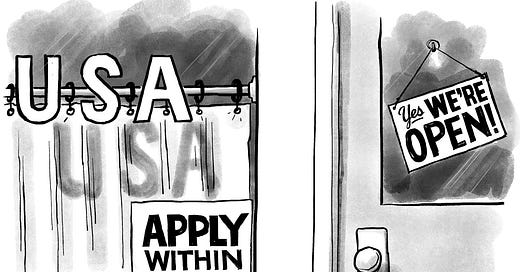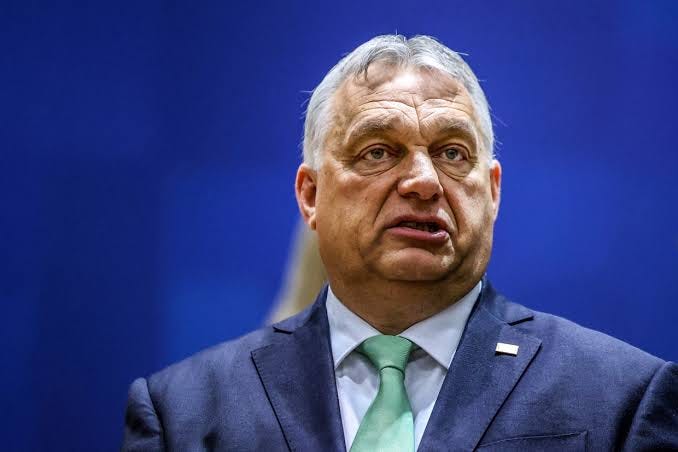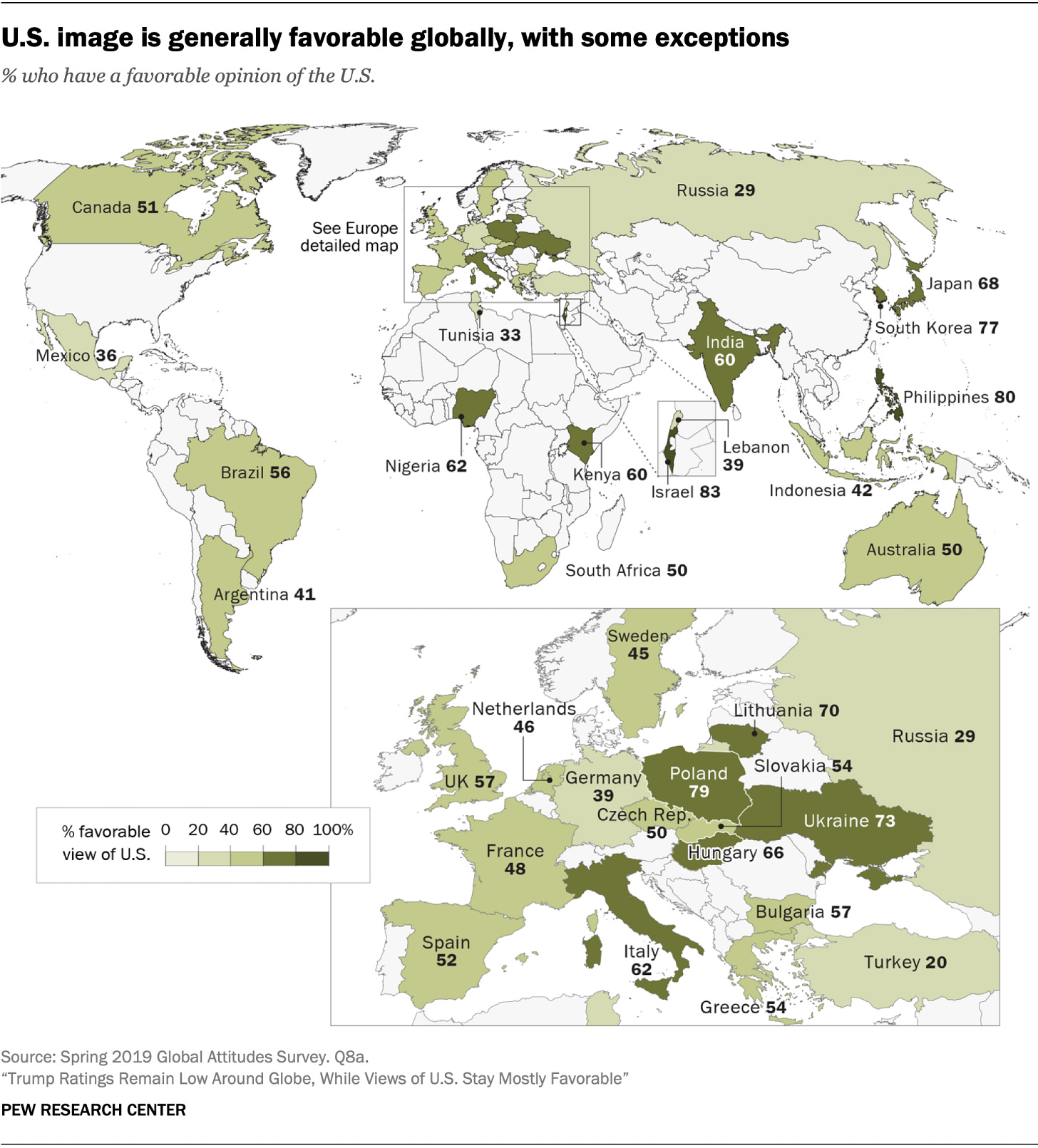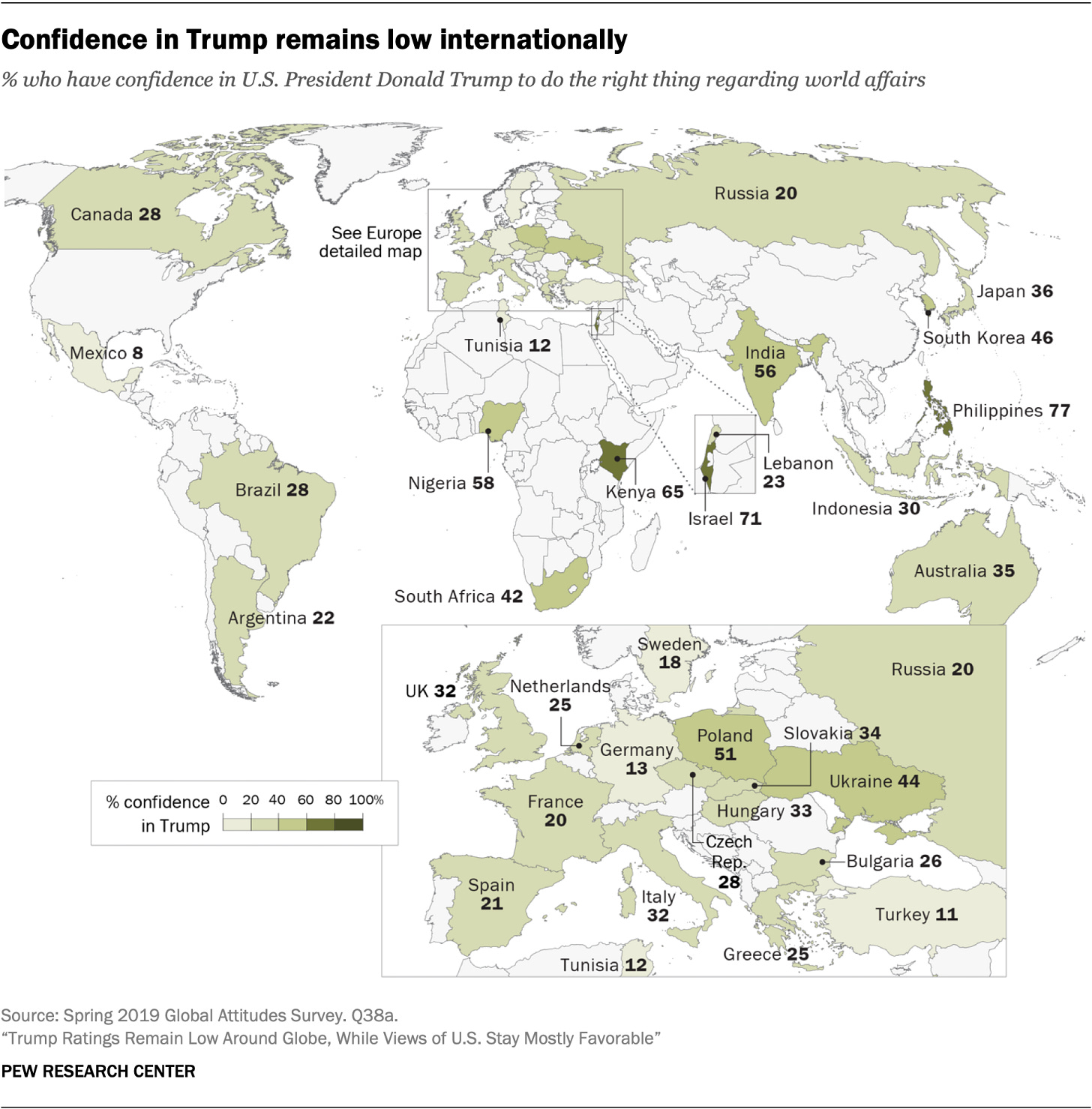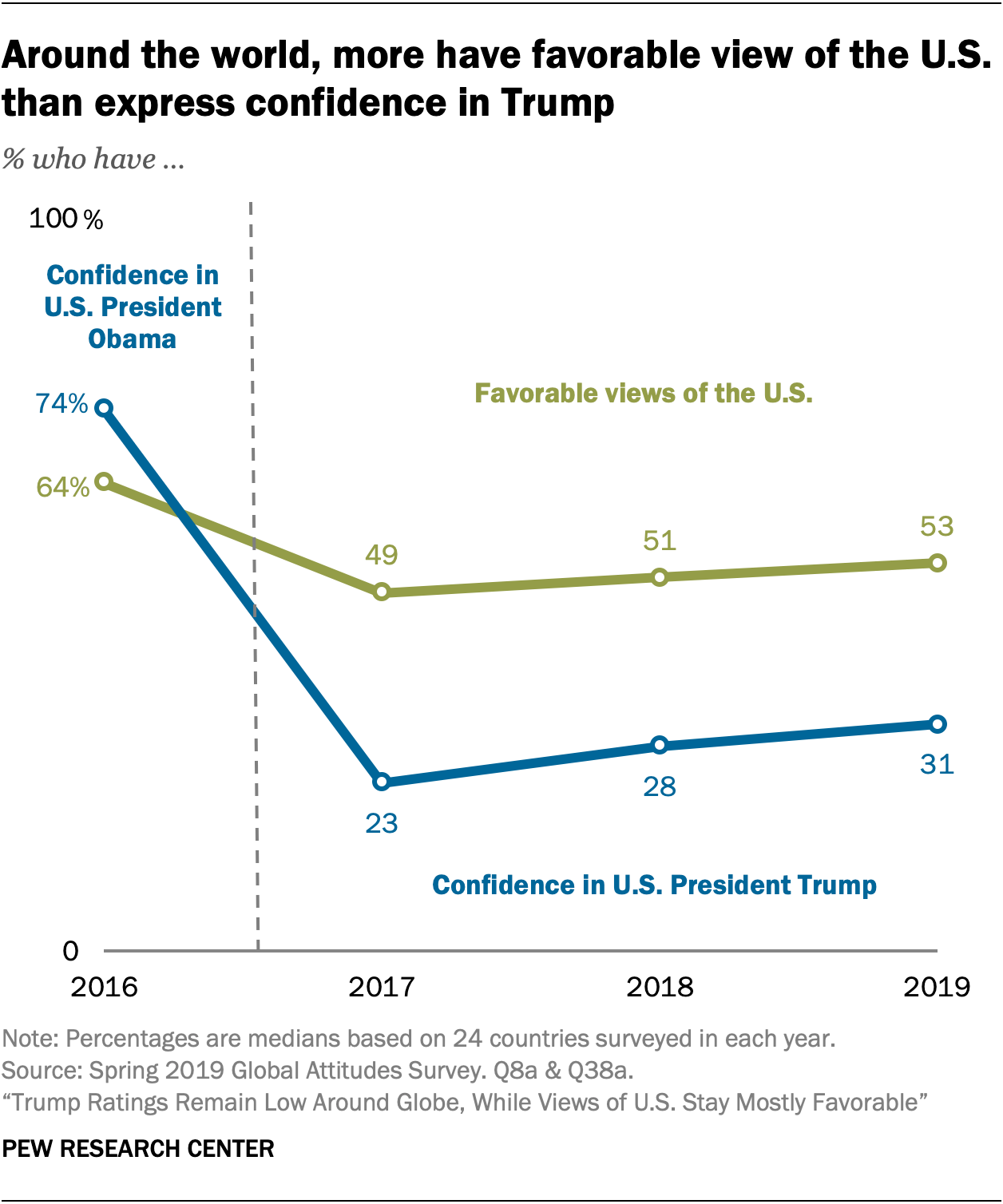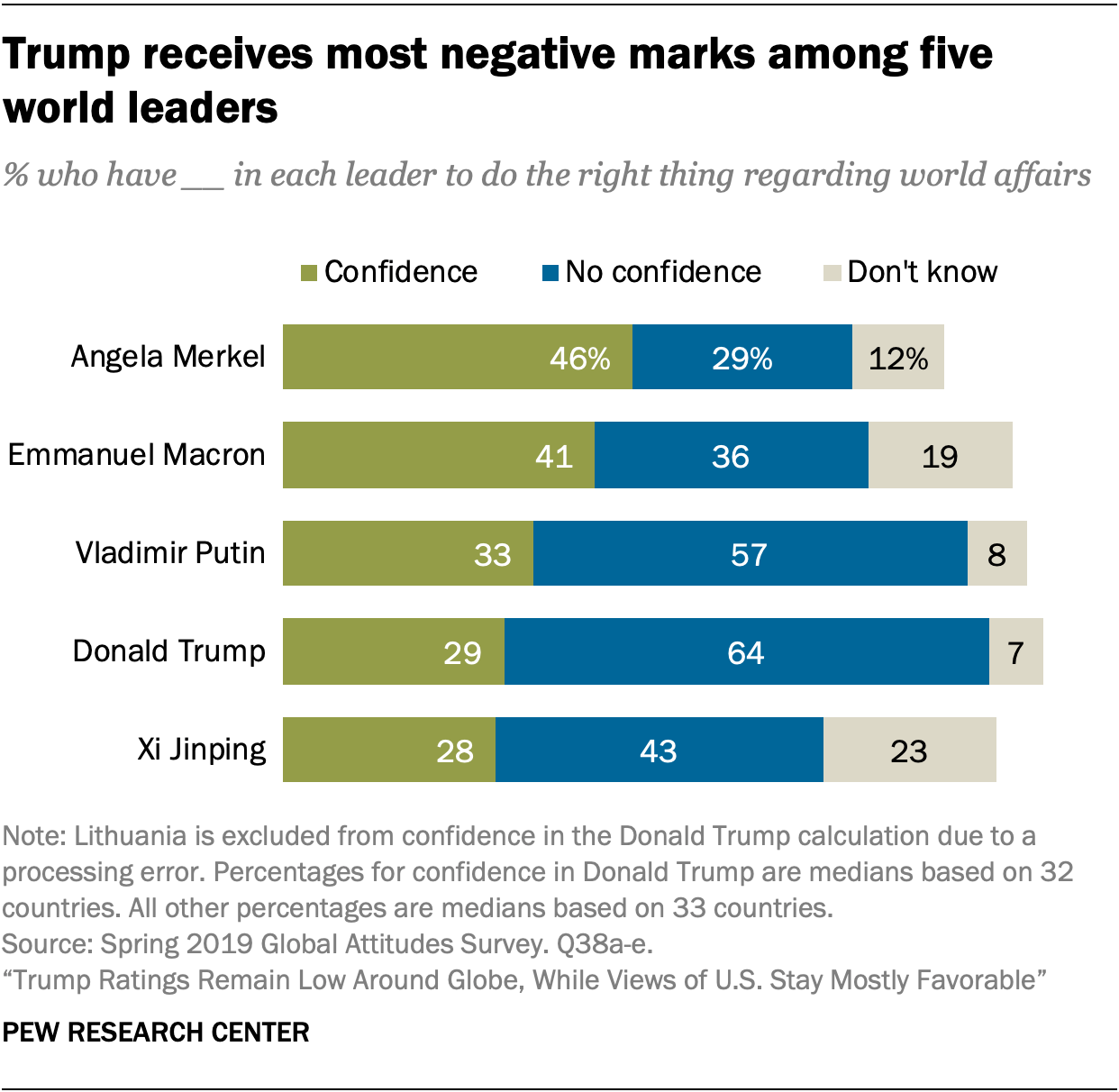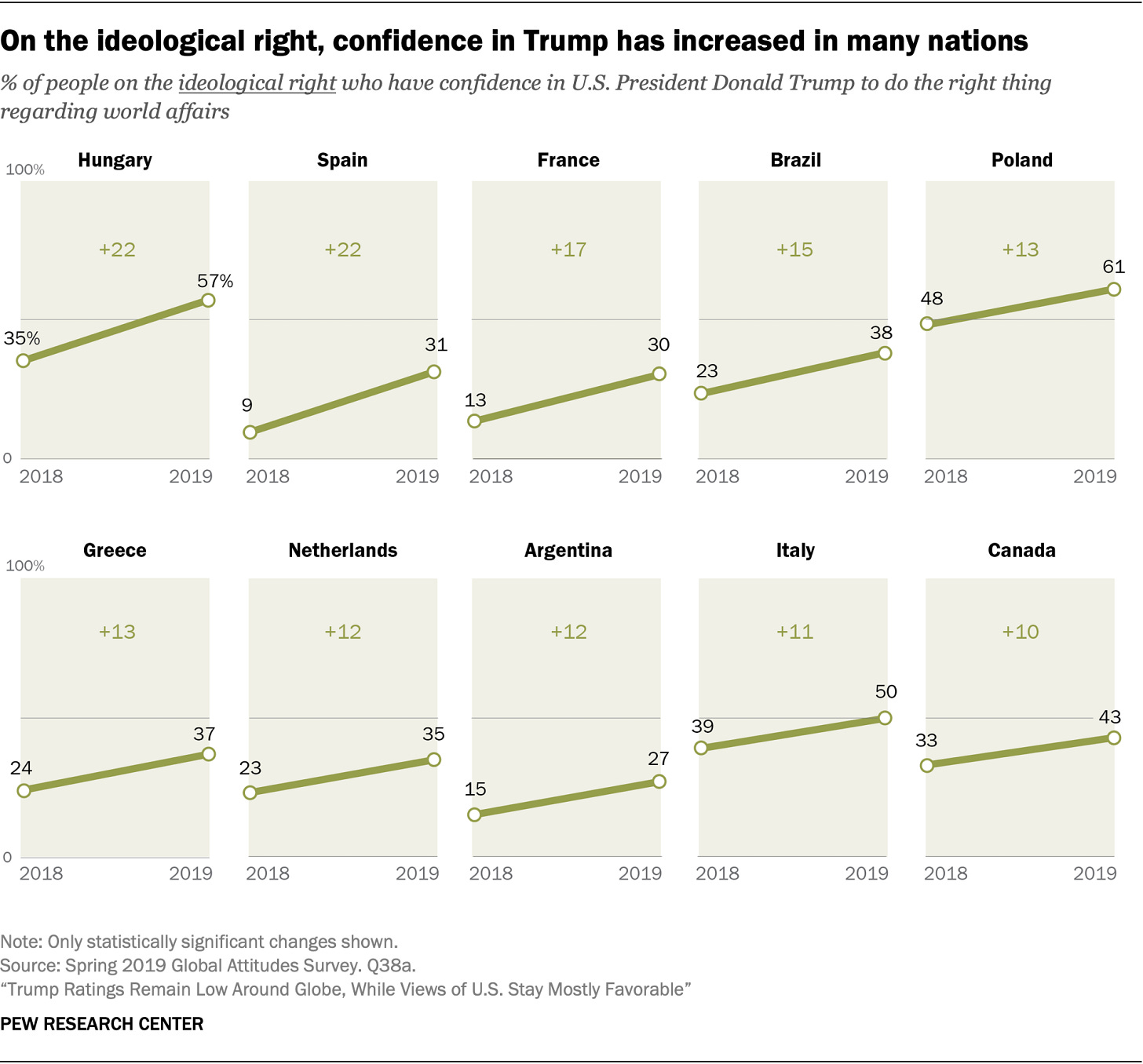"America does not take its political cues from the likes of Hungary."
Thomas P.M. Barnett, "America's New Map"
The moment that stood out for me in last night’s debate was Donald Trump being reduced to citing Viktor Orban’s approval of his leadership as indicating that America was more respected in the world during his term than in the years fore and aft.
Let the fact-checking begin!
As a character witness, Orban is decidedly problematic,
The longstanding (since 2010) Hungarian PM has been widely criticized for his authoritarian governance style and erosion of democratic institutions in Hungary, which is now widely recognized as the first non-democracy within the EU.
Orban has proudly declared Hungary an "illiberal state," earning him quite the fanbase in a Trump-dominated GOP now openly ambitious to repeat Orban’s “successes” in areas like immigration, freedom of the press, election rigging, and the like — all justified along the lines of White Christian Nationalism (We must do this to remain who we are! Otherwise, they will destroy us!).
Orbán has systematically undermined the independence of the judiciary, media, and election processes as means to consolidate his power. His government has gerrymandered districts, allowed voters to register outside their home districts, and staffed the public prosecutor's office with loyalists — all aimed at empowering Orbán's party.
The parallels scream out for recognition, do they not? Orban likes Trump because Trump validates his authoritarianism and aggressive deconstruction of democracy, two conditions Trump is eager to impose here. By citing him, Trump is signaling his second-term intentions in the clearest way possible.
What happened last time we gave Trump that opportunity to recast America’s image and role in the world?
Let’s go back to a powerful Pew research article from 2020: “How people around the world see the U.S. and Donald Trump in 10 charts.”
First off, how we were generally viewed in that timeframe
Overall, a bit depressed among longtime European allies and stronger among the former Soviet bloc states, to include Hungary and notably Ukraine, already at that point semi-invaded/occupied by Russia. The most favorable ratings come from those states worried about China, with whom relations deteriorated during Trump’s term, by his design (“trade war”). In the Western hemisphere, a Brazil that just elected the Trumpist Bolsinaro is the highpoint.
That’s America the generic “candidate.”
Now, for Trump himself:
Israel still believed in him, as did strongman Duterte’s Philippines. But, overall, some seriously low confidence reflective of an administration that sought to reset every bilateral relationship to America’s decided advantage. For America’s right wing, this was “proof” of Trump’s strength: they want a world in which America is known for looking out for itself and treating others as ingrates who better shape up!
How did Trump compare to Obama? Two charts:
Rather stark, yes?
Confidence in the US presidency whacked by roughly two-thirds, leaving our then-president under water when compared to a generic US.
Fortunately, the younger the global respondent, the better a generic US does. That is an important asset: being positively associated with the future.
As for foreign leaders, Trump rated the lowest among the majors:
So, more trust in Putin than Trump, who barely outpaces Xi.
Xeeesh!
Instead, this is where Trump improved his image over time:
Hard to tell the correlation from the causality there, but you get the clear sense that what we call Trumpism in the US was/is being mirrored across the West in general, along with S. America’s two biggest players.
But Trump and the US suffered low approval regarding our government’s policies at that time:
Again, “proof” that Trump is doing the “right thing” (pun intended) by sticking it to a world that’s long been sticking it to America!
Oh, and let’s not forget the gooey bromance (“love letters,” says Trump) between the Donald and the Kim. Among his policies, this was (here) the sole above-water approval rating.
Anti-immigration was, of course, the apogee of Trumpism in power, and that vibe was most definitely in synch with surging Rightism throughout the West.
So, Trump was clearly answering a certain demand both here and abroad: a natural instinct to shut down a growing South-to-North migration dynamic that anybody looking ahead on things like climate change and demographics would tell you is only going to get dramatically more pressurized and profound.
In that way, Trump successfully reshaped America’s standing in the world — for a time. Why? Because POTUS matters.
So, what was Biden’s impact? From a spring 2024 Pew polling effort:
Keep reading with a 7-day free trial
Subscribe to Thomas P.M. Barnett’s Global Throughlines to keep reading this post and get 7 days of free access to the full post archives.

